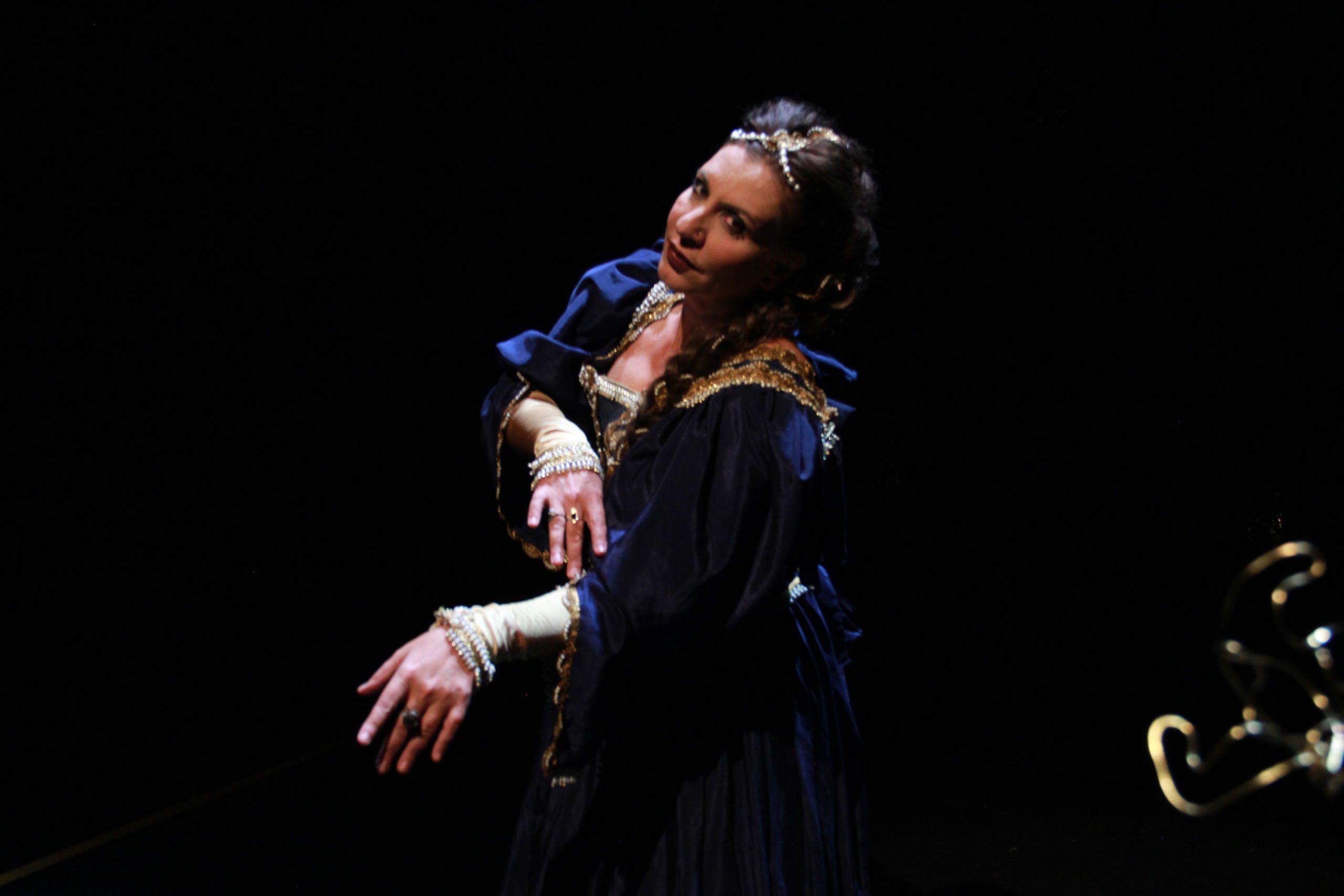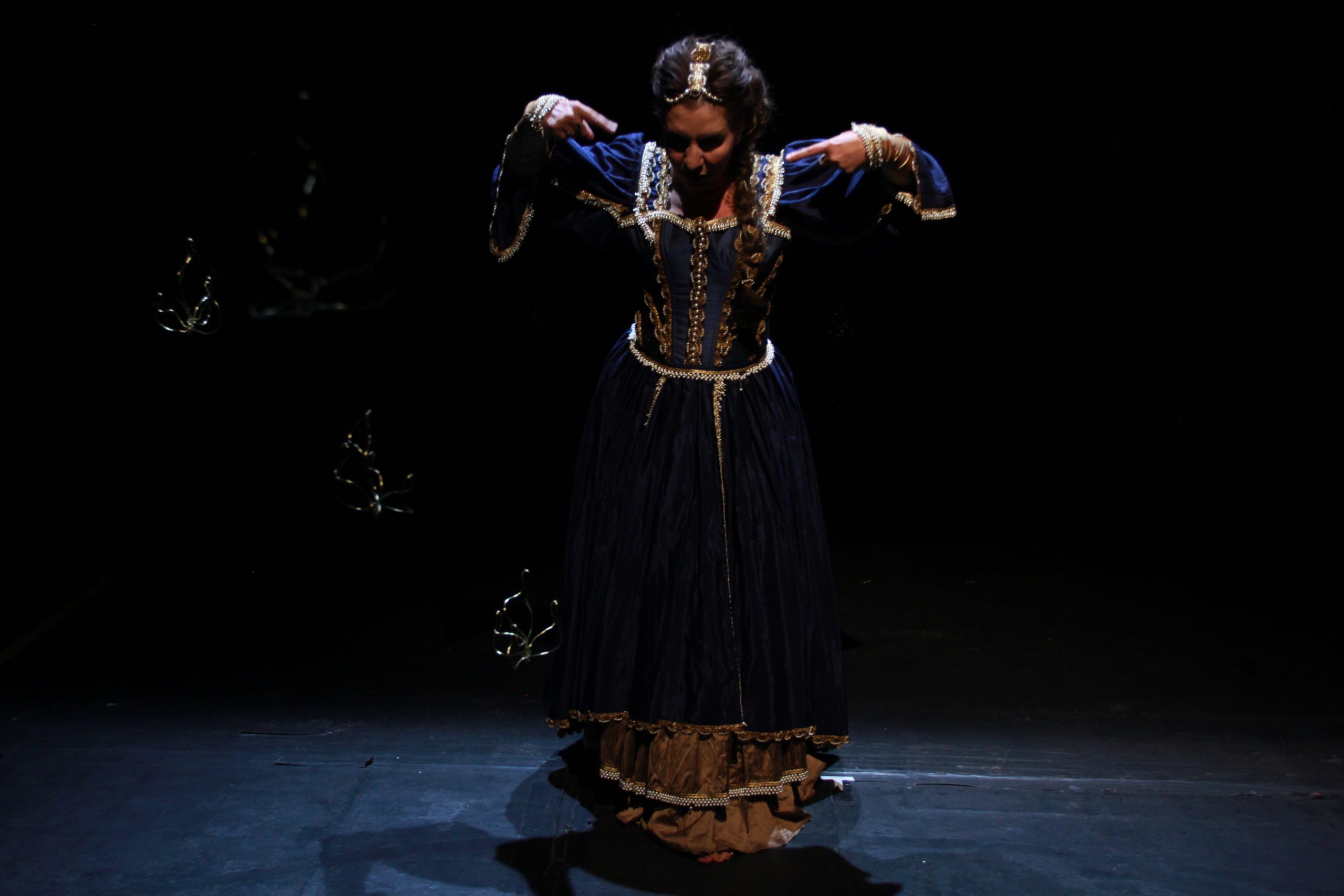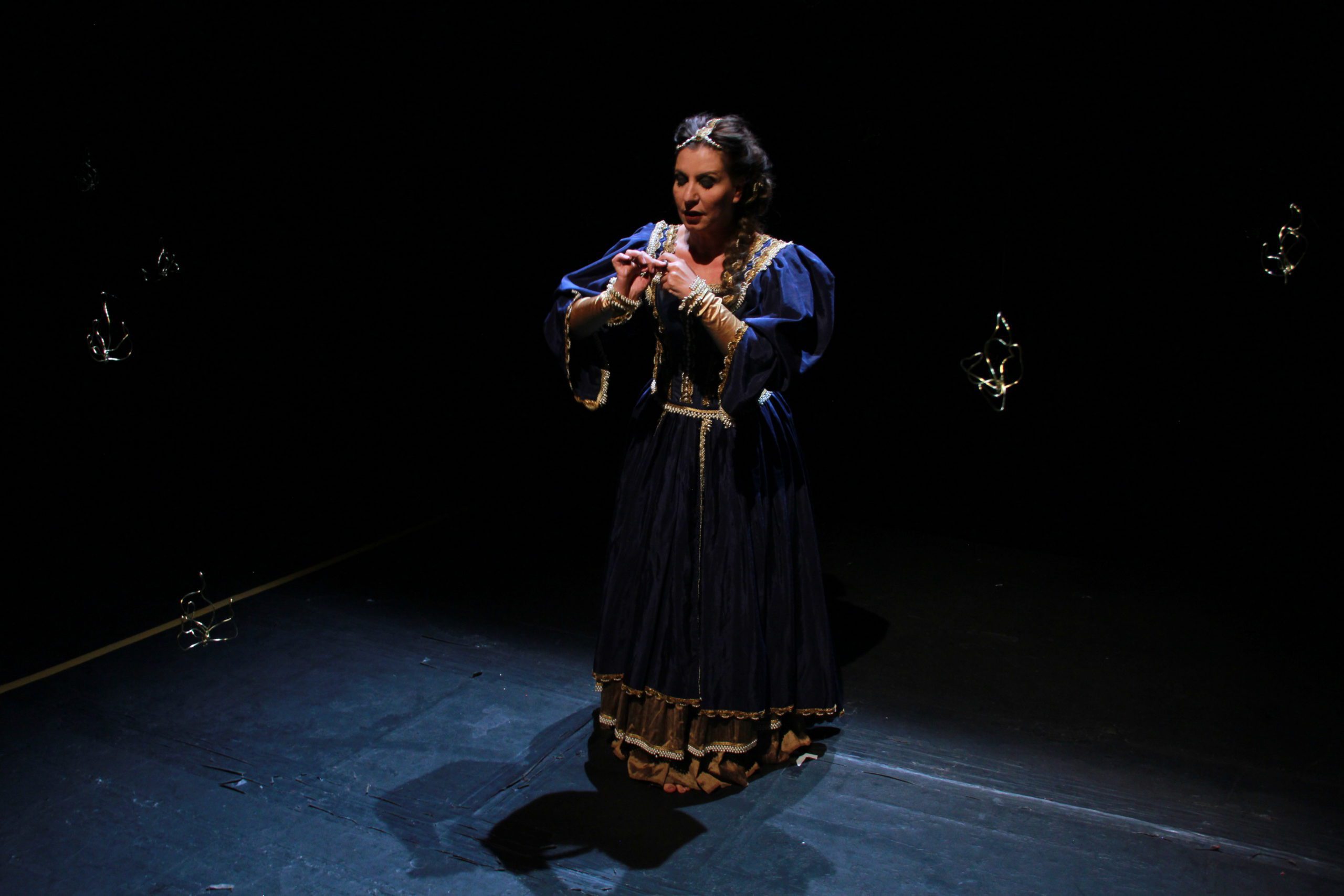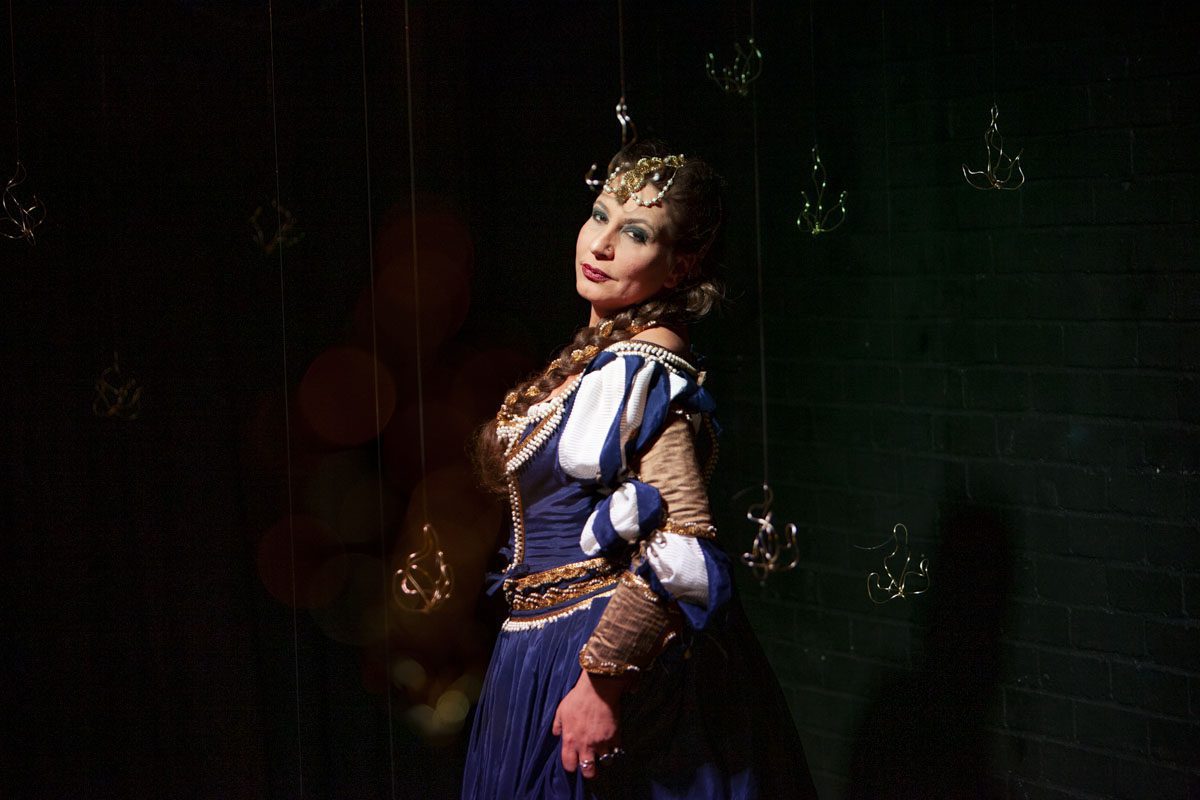by Penny Fylaktaki
directed and performed by Anastasia Revi
Translated by Vassiliki Misiou and Penny Fylaktaki
Edited by Lydia Vie
Oxford Playhouse BT Studio, March, 2019
The Cockpit, London, October, 2019
Tour of Greece (ΘΕΑΤΡΟ ΑΥΛΑΙΑ, Thessaloniki, ΘΕΣΣΑΛΙΚΟ ΘΕΑΤΡΟ, Larissa, ΙΔΡΥΜΑΘΕΟΧΑΡΑΚΗ, Αthens) November, 2019
Lucrezia Borgia, alternatively ruthless political schemer and victim of historical circumstance, awaits entry to the kingdom of heaven following her demise. Her ‘apologia’ presents juxtaposing accounts of her earthly existence: innocent victim of corruption exploited to serve political interests, to willing accomplice with rumours of indulgence, incest, orgies and murder. But is there more to tell? Lucrezia has the opportunity to explain, but can she convince God? Is she a saint or a sinner?
The Italian Renaissance is best known for its achievements in art, literature, science and exploration. At its peak, the region was hurled into chaos by the Italian Wars (1494-1559) – a succession of domestic disputes and foreign invasions involving Italy, France, and the Holy Roman Empire amongst others. The Papacy took sides against the French with the support of Pope Alexander VI. At this time, the Pope was also enmeshed in his own supremacy conflicts with France and various Italian states to secure secular territories for his children.
Credits
Director & Performer Anastasia Revi
Designer Valentina Sanna
Lighting Designer Chuma Emembolu (Oxford), Marina Konta (London and Greek Tour)
Hair Design Umberto Fiorilla
Producer Martina Reynolds
Director’s Assistant & Surtitles Lydia Vie
Production Photography Yiannis Katsaris
Stage Manager Marina Konta (Oxford)
Production Assistants Sevi Filippidou, Faidra Faitaki, Irini Fasia, Alexa Kormari
About Lucrezia the Sinner, Lucrezia the Saint
For reasons unknown, I have been interested in Lucrezia Borgia for as long as I can remember, strangely ever-ready to defend her acts and life which represented everything I was against. In recent years historians’ views have shifted from characterising her as a ruthless schemer to a victim of historical circumstance, some going as far as to nominate her as a patron saint of Arts and Letters based on her work promoting artistic and humanitarian causes in Ferrara. The bipolar categorisation of Lucrezia sparked in my mind our ever-present dichotomy of things as ‘good’ or ‘bad’, replaced at some point by the theory of relativity, maintaining things are neither good nor bad, but dependent upon external variables. Still, how flexible can we be when it comes to fundamental social and ethical taboos? Can we, humans, ever really judge an action for what it is? Can we embrace a feeling in its entirety without self-interest or comparison? And what would we be like if for a split second we could view things from a higher perspective? In a fast-paced world that forces us to place etiquettes, only to replace them shortly afterwards, Lucrezia Borgia invites us to stop time and take a look around us. Then look at one another. Then inside ourselves. And finally rise above it for a view never before seen. In writing the play as a narration revisited from different viewpoints, language and structure couldn’t be ignored. I saw writing this play as a linguistic, post-modern challenge based on subversion, while maintaining a fine balance between drama and humour, provocation and familiarity.
by Penny Fylaktaki




